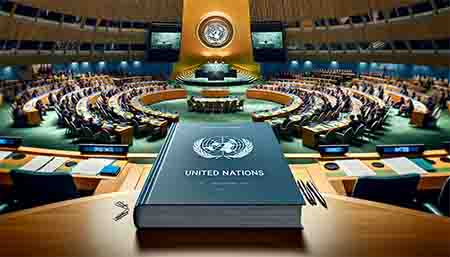
United Nations Report Claims Cryptocurrency Exchange Role in Money Laundering
January 15, 2024
The United Nations Office on Drugs and Crime (“UNODC”) issued a report today titled “Casinos, Money Laundering, Underground Banking, and Transnational Organized Crime in East and Southeast Asia: A Hidden and Accelerating Threat” which, among other things, described a possible cryptocurrency exchange role in money laundering.
Focus of the UNODC Report
The main focus of the report is the rapid transformation of transnational organized crime in Southeast Asia, particularly the role of casinos and junkets in fostering underground banking and money laundering activities. This transformation is a direct result of enforcement and regulatory actions targeting cross-border cash movement, casinos, and associated money laundering activities.
The report highlights how casinos, junkets, online casinos, e-junkets, and illegal and under-regulated cryptocurrency exchanges have become integral components of organized crime’s financial infrastructure. These entities efficiently move and launder massive volumes of state-backed fiat and cryptocurrencies, integrating criminal proceeds into the formal financial system. The expansion of the illicit economy, aided by technology, has necessitated a revolution in the regional underground banking systems, leading to an increase in criminal revenue streams and a corresponding need for sophisticated money laundering techniques.
Issues Highlighted
The report addresses several critical issues. It highlights various methods employed in money laundering and underground money transfers, including traditional cash-in cash-out systems, gambler collusion, junket financing, offsetting arrangements, and misuse of VIP accounts in casinos. The rapid proliferation of online gambling platforms and their integration with cryptocurrencies have added new layers of complexity, making it challenging for regulatory authorities to track and control these activities. The report also described a possible cryptocurrency exchange role in money laundering.
The migration of criminal operations into more inaccessible areas and the virtual realm in response to increased law enforcement efforts is a significant concern. The growing use of cryptocurrencies in online gambling for money laundering purposes has become a major challenge. The report also sheds light on the emergence of ‘points running’ syndicates and money mule ‘motorcade’ teams, which are sophisticated methods developed to facilitate these illicit financial transactions.
Suggestions
In response to these challenges, the report recommends the development of comprehensive national and regional strategies. These strategies should specifically address the intricate issues surrounding casinos, junkets, and cyber-fraud. It advocates for the strengthening and revision of legislation related to money laundering, asset forfeiture, casino supervision, and the management of SEZs. Establishing mechanisms for monitoring and verifying the origins of funds in casinos is considered crucial.
Training law enforcement in advanced technological methods used in money laundering and establishing inter-agency forums for information sharing are suggested to enhance collaborative efforts against these criminal activities. Improving the management and supervision of both land-based and online casinos, particularly in integrating suspicious transaction reporting software and advanced surveillance technologies, is emphasized. Strengthening licensing regimes for money transfer services, including those dealing with cryptocurrencies, is recommended to regulate and monitor financial transactions effectively.
Conclusion
The UNODC report describes the complex relationship between casinos, money laundering, and organized crime in Southeast Asia. It reveals the sophisticated methods employed by criminal organizations and the significant challenges posed by emerging technologies like cryptocurrencies. The report underscores the necessity of a coordinated and well-informed response from authorities, international bodies, and various stakeholders in the region.
The intricate nature of these criminal activities, often hidden behind the façade of legitimate operations, poses a significant threat not just to the financial systems but also to the social and economic fabric of Southeast Asia. The recommendations made by the report call for a multi-faceted approach that includes technological, legislative, enforcement, and educational measures. These measures are aimed not only at curbing the current trends in money laundering and related criminal activities but also at preventing their further evolution and spread.
The use of SEZs and the migration of operations to more inaccessible areas indicate a tactical adaptation by organized crime groups in response to law enforcement efforts. This highlights the need for innovative and adaptive strategies by authorities and the importance of international cooperation in tackling these issues. The growing sophistication of these criminal networks, their integration with legitimate businesses, and their exploitation of technological advancements necessitate a dynamic and forward-thinking approach to law enforcement and regulatory oversight.
The report serves as a crucial resource for policymakers, law enforcement agencies, financial institutions, and other stakeholders. It provides a comprehensive understanding of the current landscape of organized crime related to casinos and money laundering in Southeast Asia. By implementing the suggested strategies, there is potential for significant progress in disrupting these criminal networks and mitigating the risks they pose to the region.
Full Report:
Casinos, Money Laundering, Underground Banking, and Transnational Organized Crime in East and Southeast Asia: A Hidden and Accelerating Threat
The full report can be found here: UNODC, Casinos, Money Laundering, Underground Banking, and Transnational Organized Crime in East and Southeast Asia: A Hidden and Accelerating Threat, January 2024.
Return to Homepage: G. Dowd Law LLC
